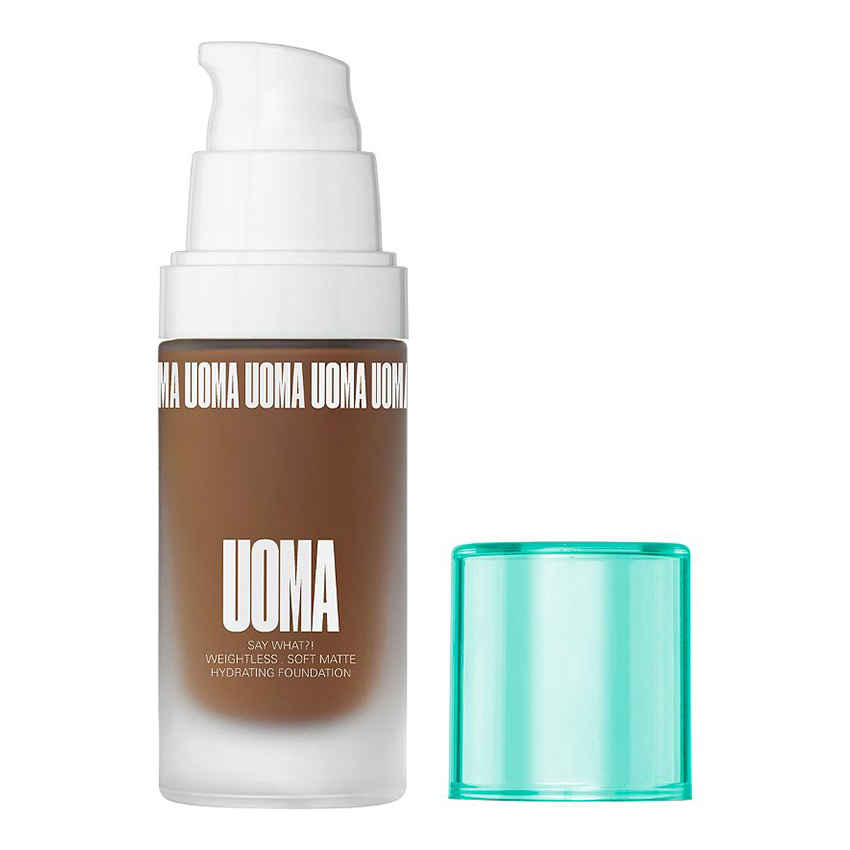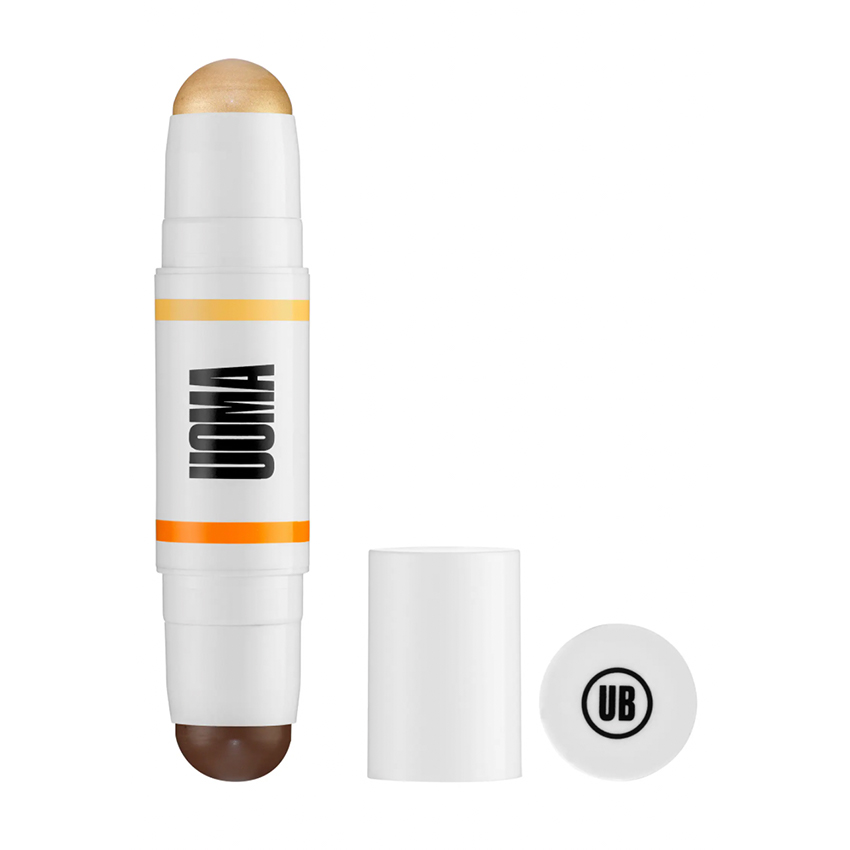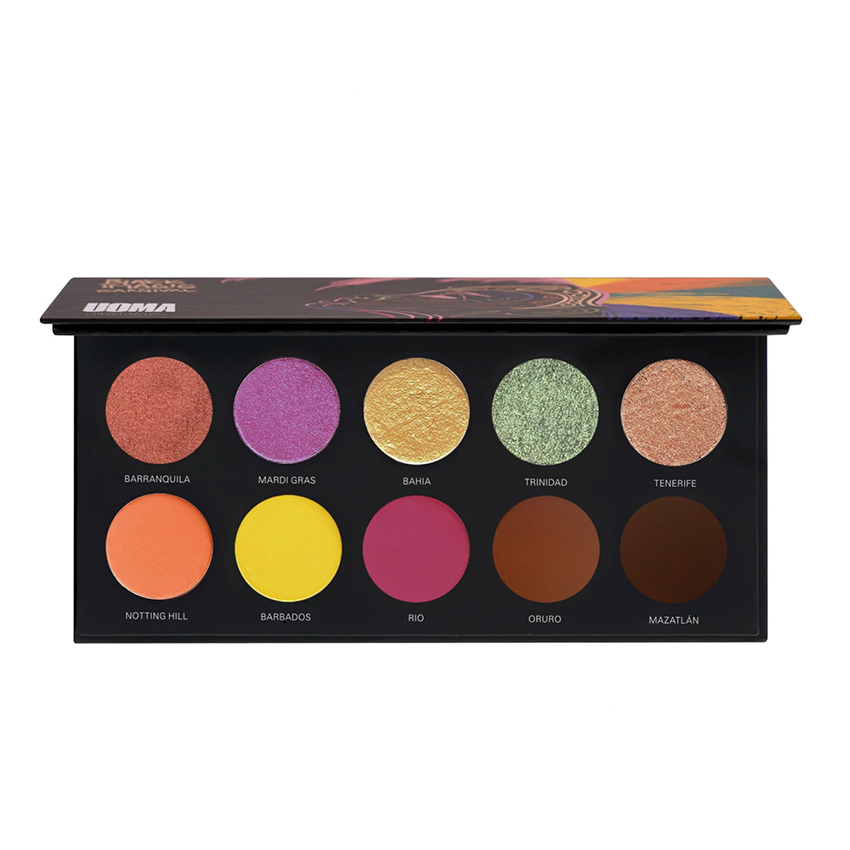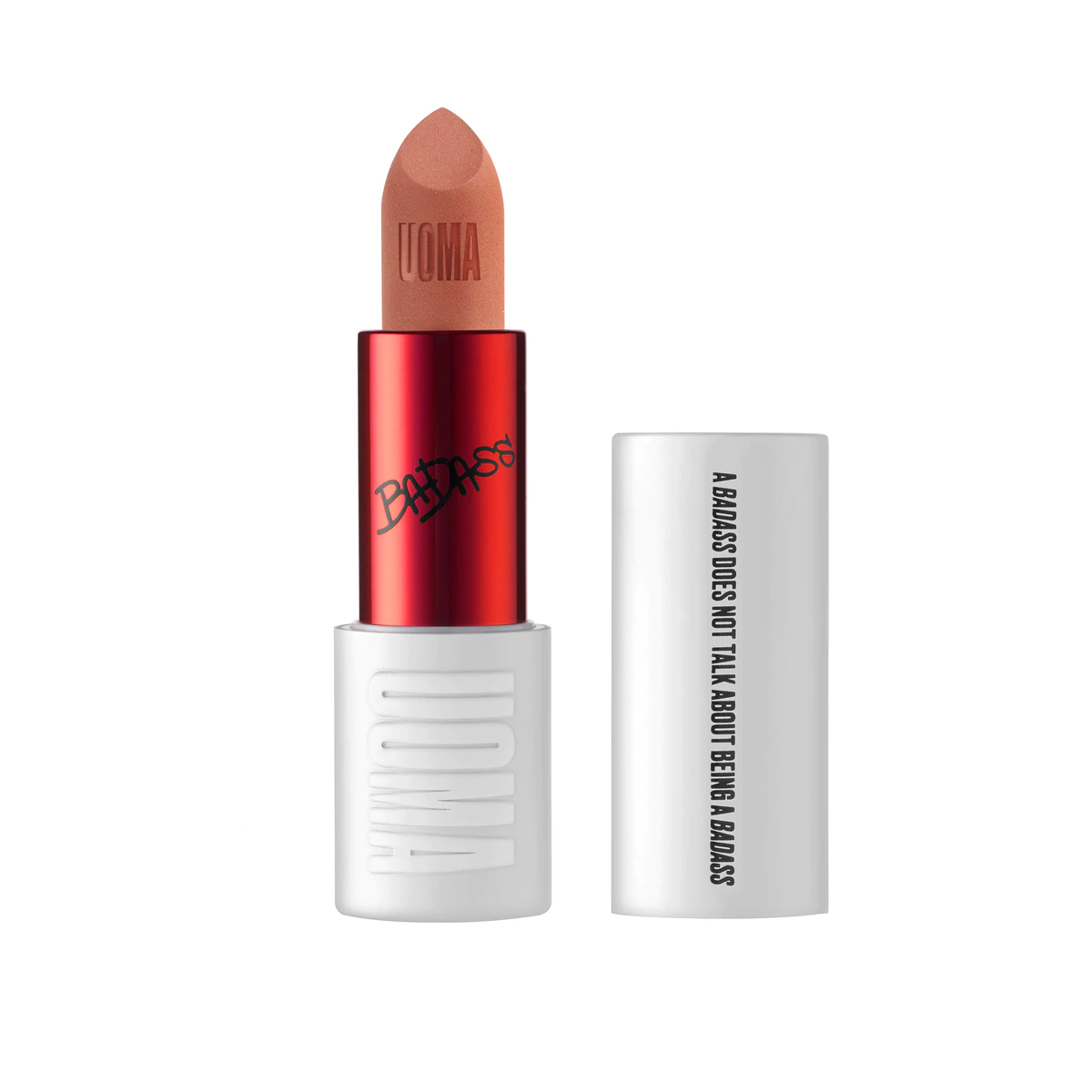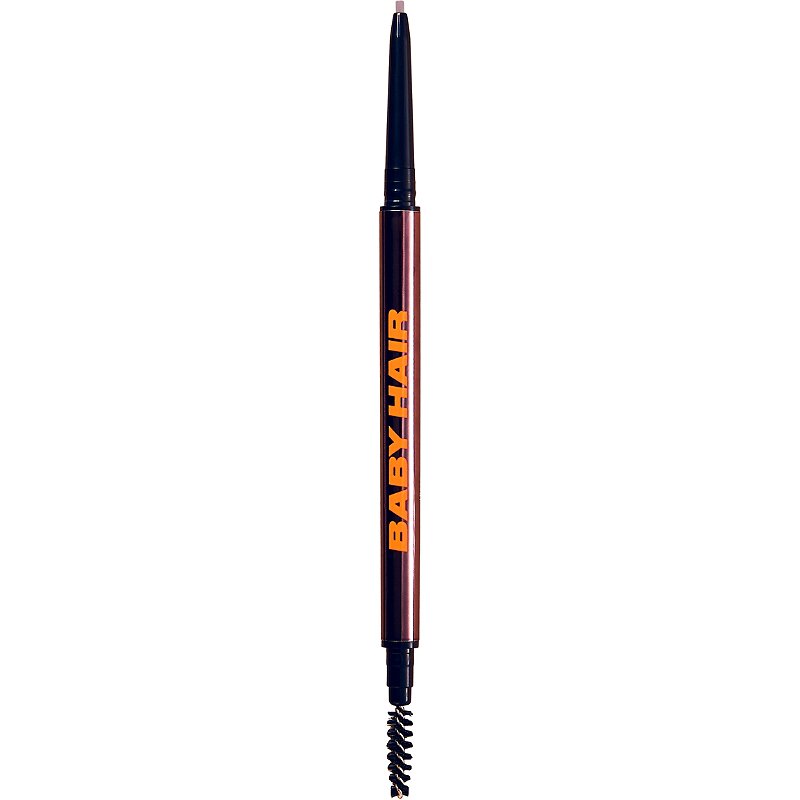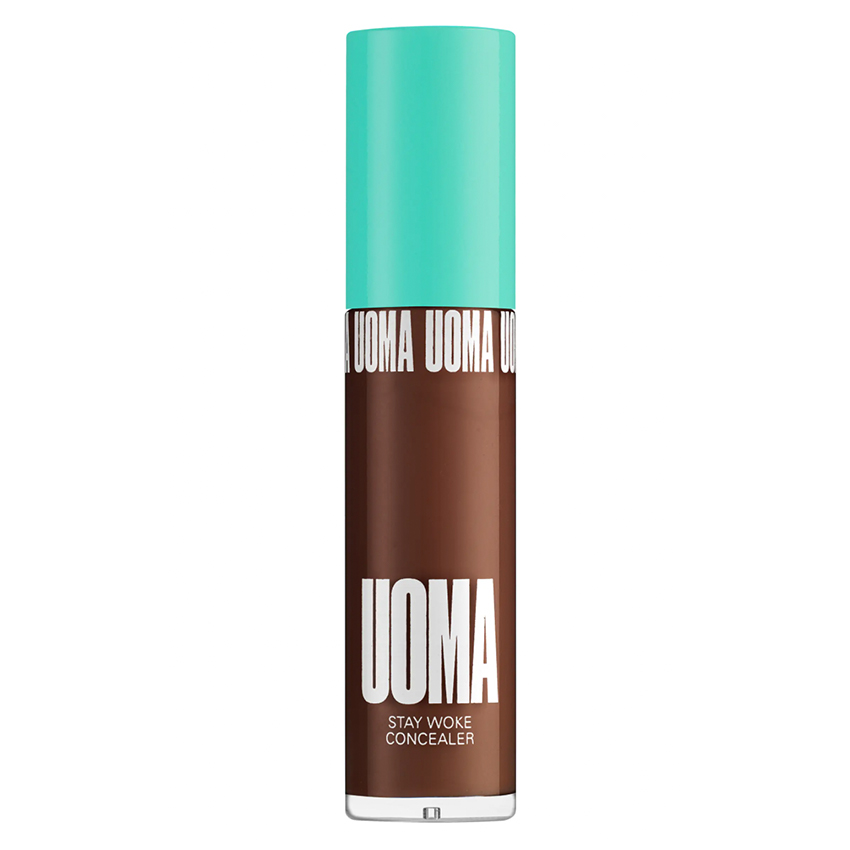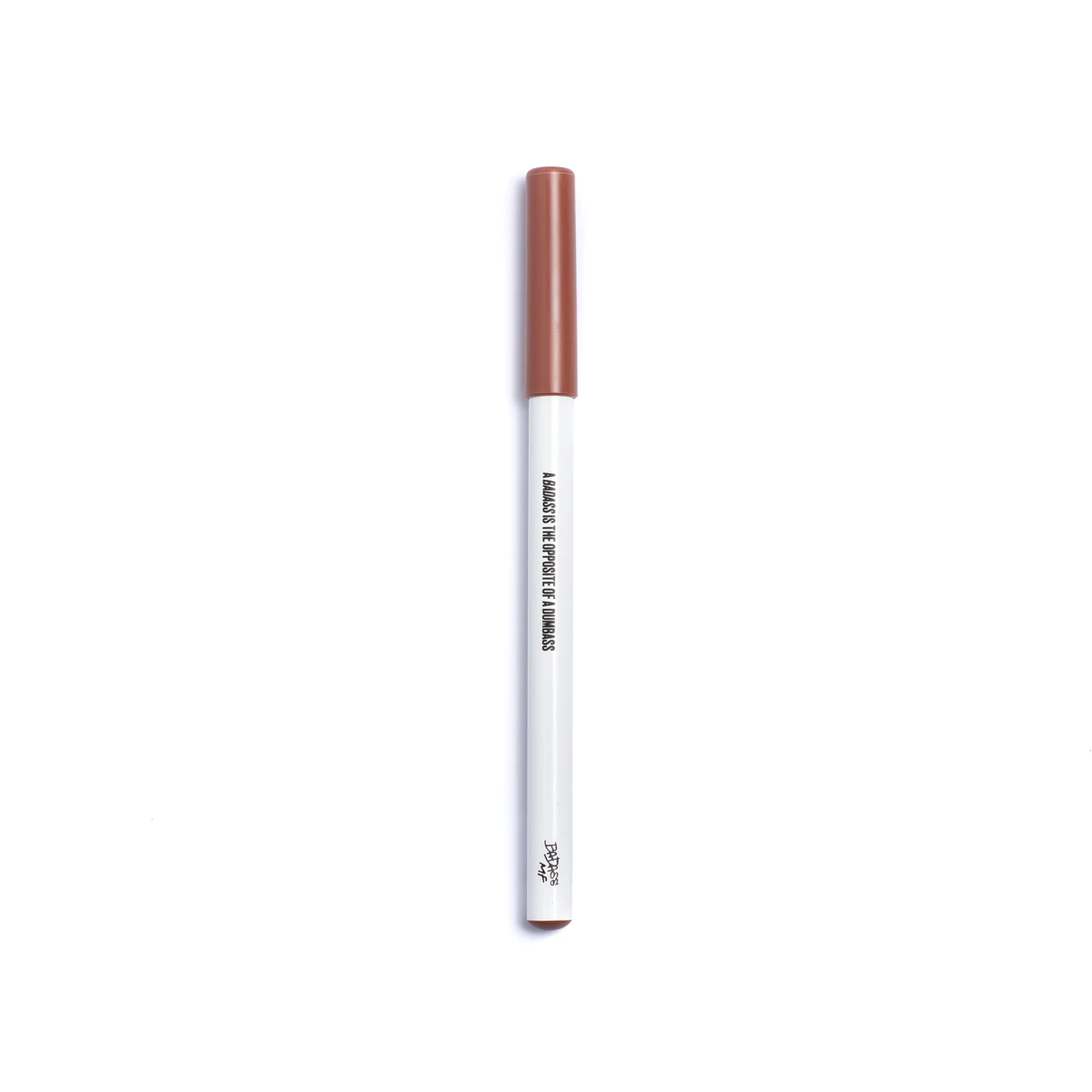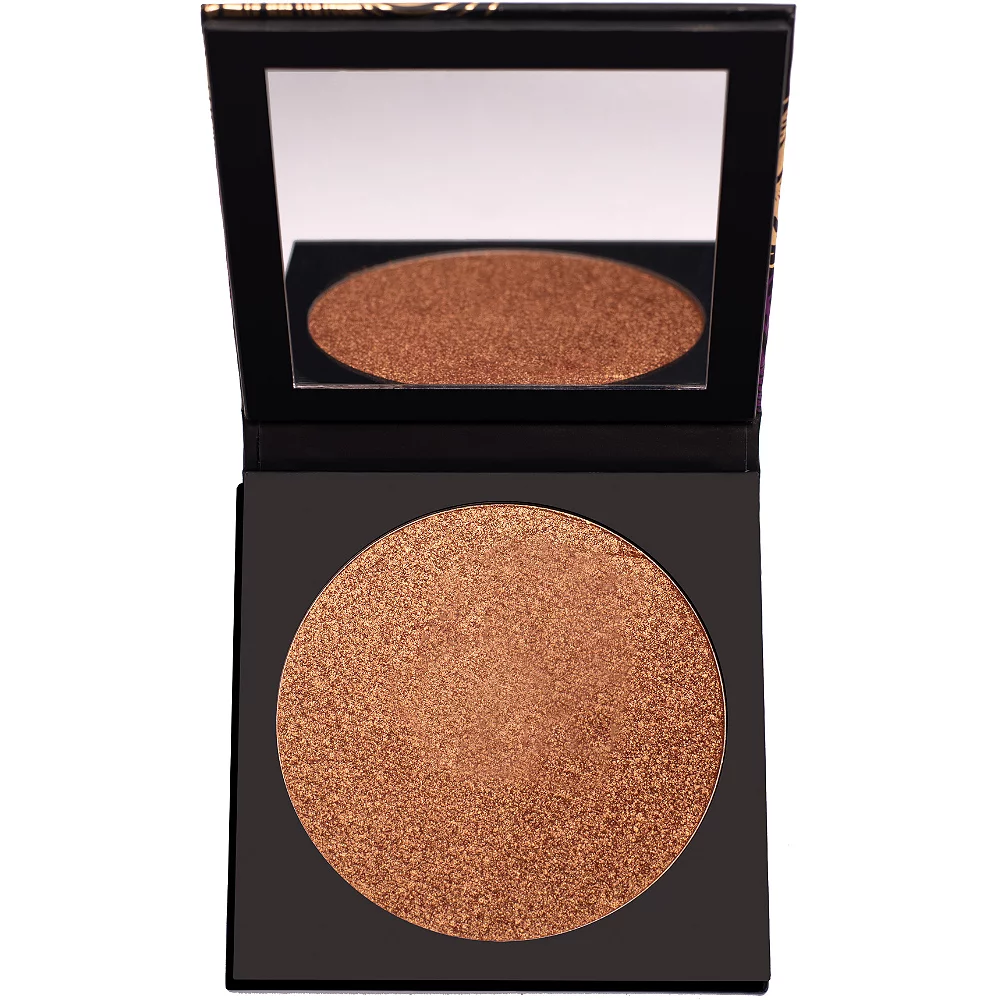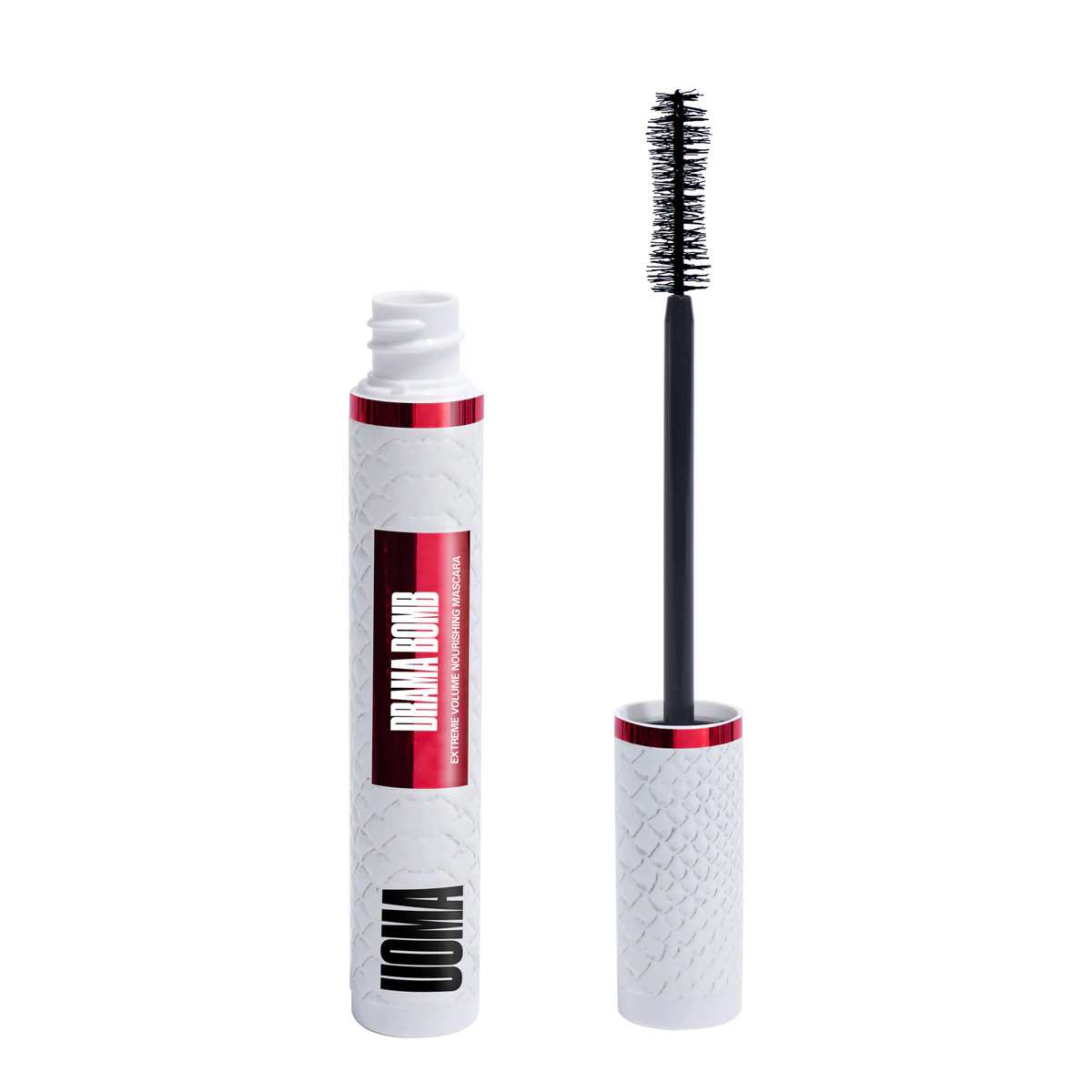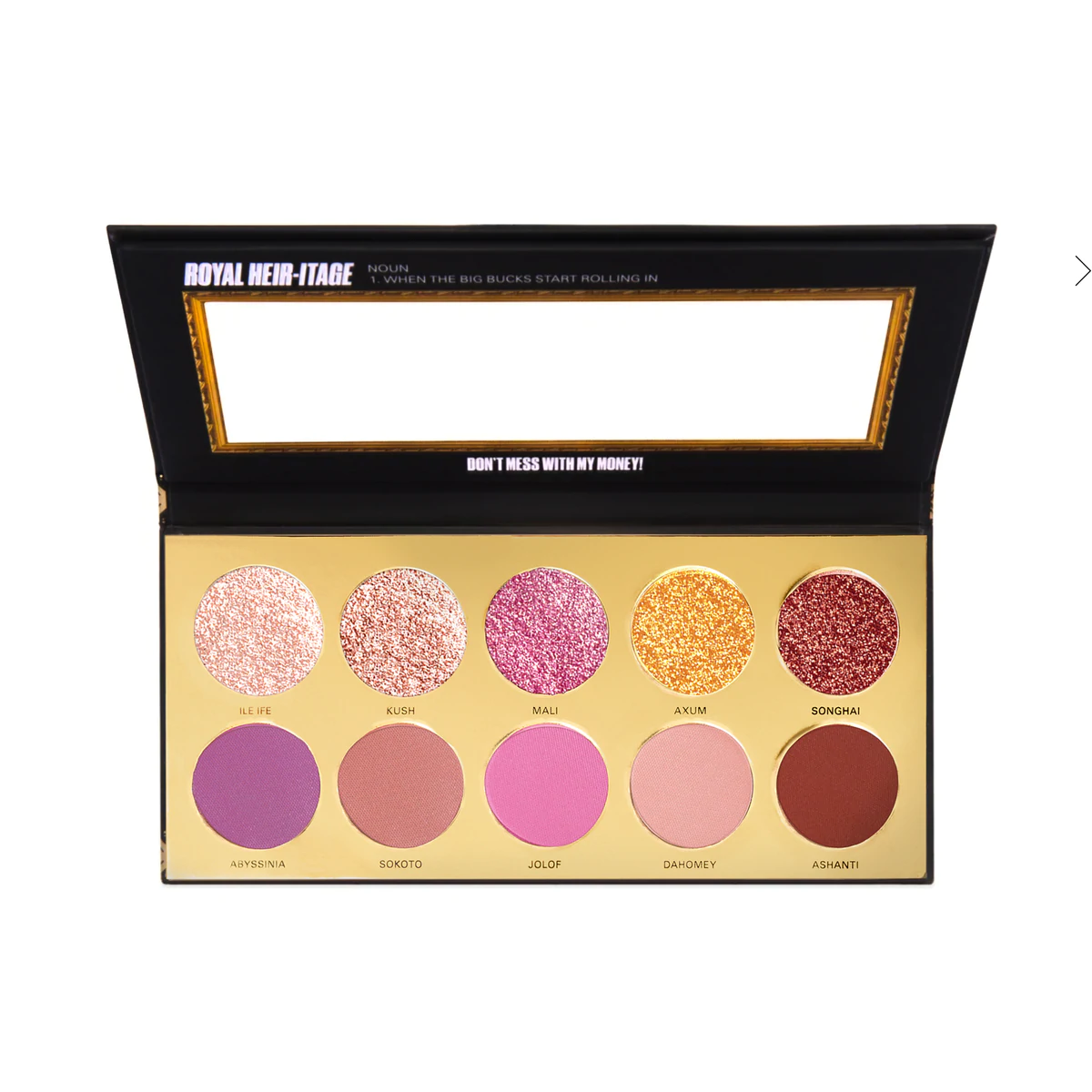Sharon Chuter on Celebrating Her Heritage and the Future of Uoma Beauty

With a firm handshake, say hello to Business of Beauty—an exclusive, inside look at each of the incomparable journeys of entrepreneurs of color in the beauty industry. This series is anything but business as usual. It's a raw, honest look at the unique and often overlooked challenges that people of color face when starting their own beauty brand. Each founder will reveal the biggest hurdles they’ve overcome, their internal struggles, and their deepest thoughts about what needs to change in the beauty industry (and the world, really) to make it a more inclusive space for everyone.
For our first installment, we're diving deep with activist, trailblazer, and founder of Uoma Beauty Sharon Chuter. Her bravery, vibrant spirit, and willingness to have uncomfortable conversations have helped her build a successful and inclusive beauty brand that will continue to flourish and reach new heights in the coming year. Read all about her experience below.
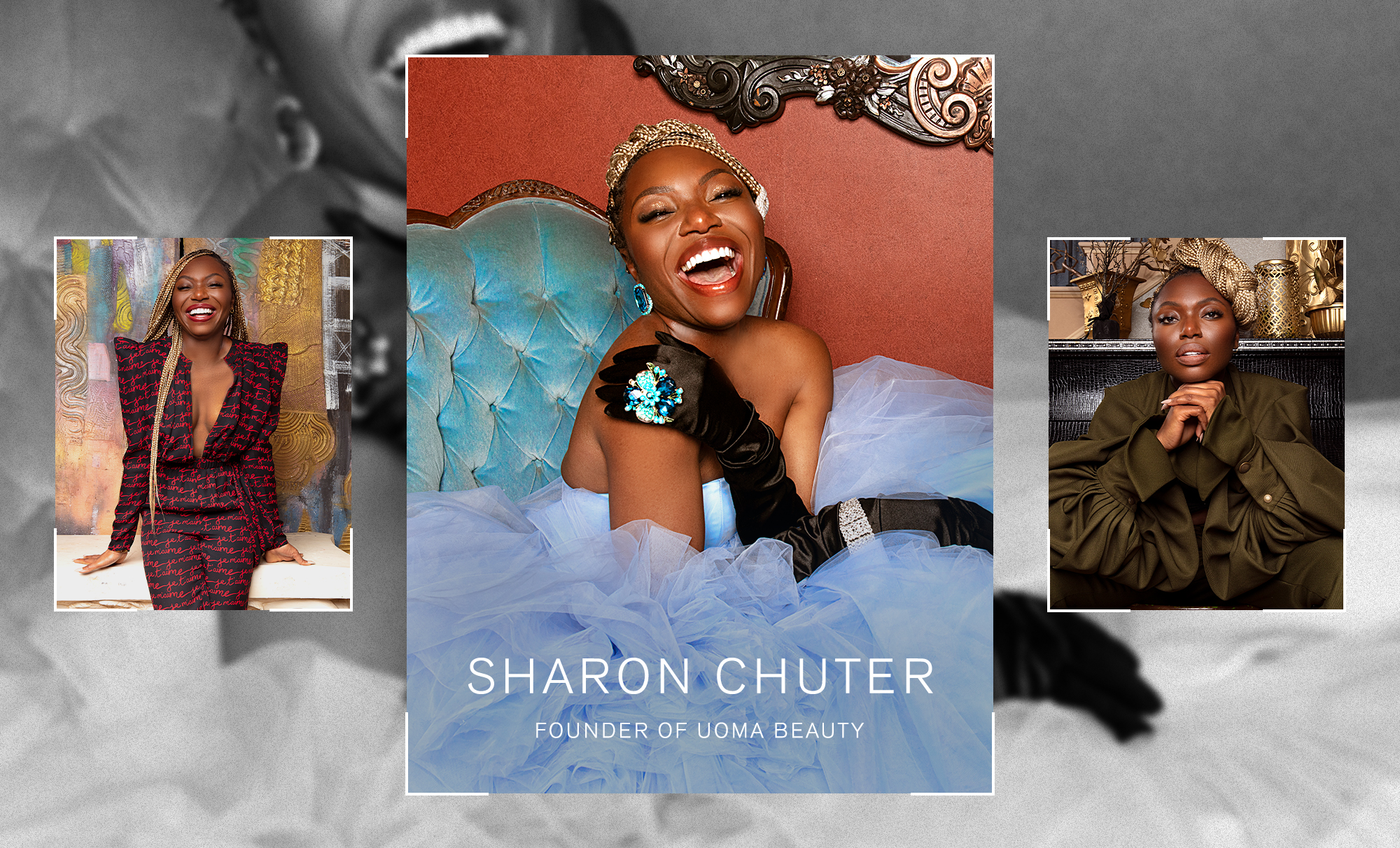
Having had the privilege to speak to so many beauty entrepreneurs of color at this point, I've become innately aware of what a different experience the color of your skin makes when starting a business. There are so many challenges people of color face on a daily basis that are often not even spoken about publicly. These conversations inspired me to want to shed more light on these issues. One particular person who does this so well is Uoma Beauty founder Sharon Chuter.
Chuter is a true trailblazer, bravely paving the way for a more inclusive industry. She is warm, outspoken, incredibly friendly, and made me feel like I was having a conversation with a close friend who was just being open and honest about her experience. It both inspired me deeply and bolstered my excitement for the beauty industry's future. In addition to being the founder of Uoma Beauty, she is also the founder of Pull Up for Change, an organization dedicated to advancing the economic well-being of Black communities. What began as a trending movement on social media calling for large corporations to reveal the number of Black workers they employ has now turned into something even larger. Below, you'll find my conversation with Chuter revealing her biggest hurdles, what's coming from her brand, and how we can make more positive, lasting change in the industry.
First, I would love to hear a little bit more about your background growing up in Nigeria. Was there anything specific about home that inspired you to create Uoma Beauty?
The whole brand was pretty much created as a celebration of my heritage and cultural identity. I hope that it inspires others to be proud of who they are because, of course, coming from a place [like] that is amazing. When I look at Uoma Beauty, it's a reflection of my journey and the celebration of our culture and identity. But more importantly, it's a reclamation of that culture. It's so funny when you think about the state of the industry today. For me, it's laughable that the industry is making a big deal about organic, natural [products]. [In Nigeria], everything is organic and natural for us. I grew up eating fruit off of a tree. Now when I look back, I say, "Wow, that's what people call organic now." I still rub pure shea butter on my body because my mom brings them for me.
That's all I use on my skin because everything else dries me out, you know? This is what people are paying a premium for! We were called barbarians for doing that, and now you're packaging it into fancy bottles and selling it. So when I think about this brand, a lot of my business comes from my childhood, especially in terms of how colorful it is. For me, that kaleidoscope of colors takes me back to [when we would] go to church on Sunday. The women would wear fancy scarves, and it was like the biggest fashion show. So when I'm looking for colors or textures, that's what I turn to. It's why I shoot a lot of my campaigns in Africa—it's just [filled with] textures that you can't get elsewhere. It's so raw and organic. In creating Uoma Beauty, a lot of the creative inspiration and the storytelling comes from my culture and heritage that I share with the world. And in doing that, I want to do two things. One, I want to inspire everybody to really love who they are. And two, to help people who come from there and other marginalized groups around the world understand it's okay to be you. Through my brand, I want the world to understand and enjoy this culture that they enjoy every day, to be honest, but just never give credit to. And now I'm saying, "Say my name and say our name." I want everybody to feel proud and inspired to go, "If somebody can do this, I can do this, too." And that's what I want people to be proud of.
I think that rich sense of culture really shines through in the brand. Everything from the packaging to the colors is so on point. I know that you also worked with other major brands such as Revlon and L'Oréal previously. How did that time in your life really play into the creation of your own brand as well?
It played a huge role. I think for me, I wouldn't have created my brand if I didn't have those experiences, both good and bad. Because, the good news is, I wouldn't have been able to be a beauty entrepreneur and create what I've done in such a short period of time if I didn't practice and learn from those companies. I hear a lot of people say they want to be rule breakers, but you have to know the rules to break them. My experiences there helped me understand the rules. Then, I had to figure out what parts of these rules I hated and what parts of these rules I loved. So I learned all the good things—the structure, discipline, patience, how they bring things to life, and the amazing part about the business of it all. I learned so much. I always say that [this brand] is my work and my art. If I can't wake up every day and love it and do it to the best of my ability, then how do I go to sleep at night? I take a lot of pride in what I do. My goal has always been to do something more and lead a meaningful life when [traditionally] women were just supposed to serve a man. Whatever job I went into, I was very dedicated because I always wanted to prove to myself and everybody else that we can [always] be more [than that].
When I went into these companies, I was like a sponge. I learned everything I could learn—even about supply chains when I didn't work in that department. The bad part was the trauma that I endured in these places. And the understanding that if I was sitting in these structures and they weren't making the world a better place, I couldn't continue to sit there. And really, that's what inspired me to break out. I realized that I would never change that ship—I would never turn it around. The powers that be were too solid and too big. During my corporate career, even if you had a sexual abuse complaint against a man at the top, you would be the one who went instead. They'd give you a payout for you to go, and that person would stay. It was those crazy toxic structures that made me break out—it wasn't about me not wanting to work hard. I've always worked hard. It was just that I knew there had to be a better way to do this. My organization is never going to be perfect, but I can always create a space where nobody is being discriminated against. That was a really big point for me. I left to go create and be part of setting up a new world where we can have organizations (especially within the beauty industry) that are ethical and can also be profitable. Until somebody models that, nobody's going to follow. That's what I'm excited to continue to do with Uoma Beauty.
I read another interview where you talked about taking in anywhere from six to 12 of your own models into a lab for product development because most products (like foundation) made for darker skin tones aren't even swatched on human skin. I'm sure that's just one example of the many challenges that people of color face when starting a beauty brand. I would love to hear about those experiences from you and the challenges that you faced being an entrepreneur of color. How did you handle those challenges?
When I start thinking of my challenges, there are some in so many areas. You're always fighting with biases, especially from a retailer perspective. You will always be educating. If you're lucky, they're ready to receive that education. In most cases, they aren't. When you're launching [a product], everybody assumes you're an ethnic brand. That never happens to white women. Nobody ever says that to them. That affects you everywhere. It affects you from a retailer perspective, an investor perspective, and a consumer perspective. Often, when consumers hear it's a Black-owned brand, they assume it's an ethnic brand and walk away. That is every single touchpoint in the infrastructure.
If you looked at a lot of some of the biggest Black-owned brands now, they don't even talk about color. They don't even reference their Blackness, and they just stay away from it because that's the best way to do it. So you can imagine how many founders have ever encountered that when launching a brand. Even during product development, I started to tell labs not to present me a formula if it's not the right color. It's insulting to me that you would ask for my money but are showing me a foundation formula in a light shade and telling me you don't make the dark ones. Even working with scientists to enable them to make darker shades was a challenge in itself. Going into the lab in Milan that I manufacture in, I couldn't find models [of color] at any agency. I had to go and cast on the streets and through WhatsApp.
There are always hurdles that you're going through every step of the way. And sometimes it will seep into your organization—even on your teams. The second you're a woman of color, people get very offended when taking instructions from you. A friend of mine did an analysis and found that the Glassdoor reviews of female founders of color are usually negative. And you always have to be the one staying calm, especially with men—a lot of them don't want to listen to a woman. Some days, it's exhausting. You're fighting, you're educating, and everything is harder. So it is not easy being a woman of color on a seat, because you end up being labeled aggressive.
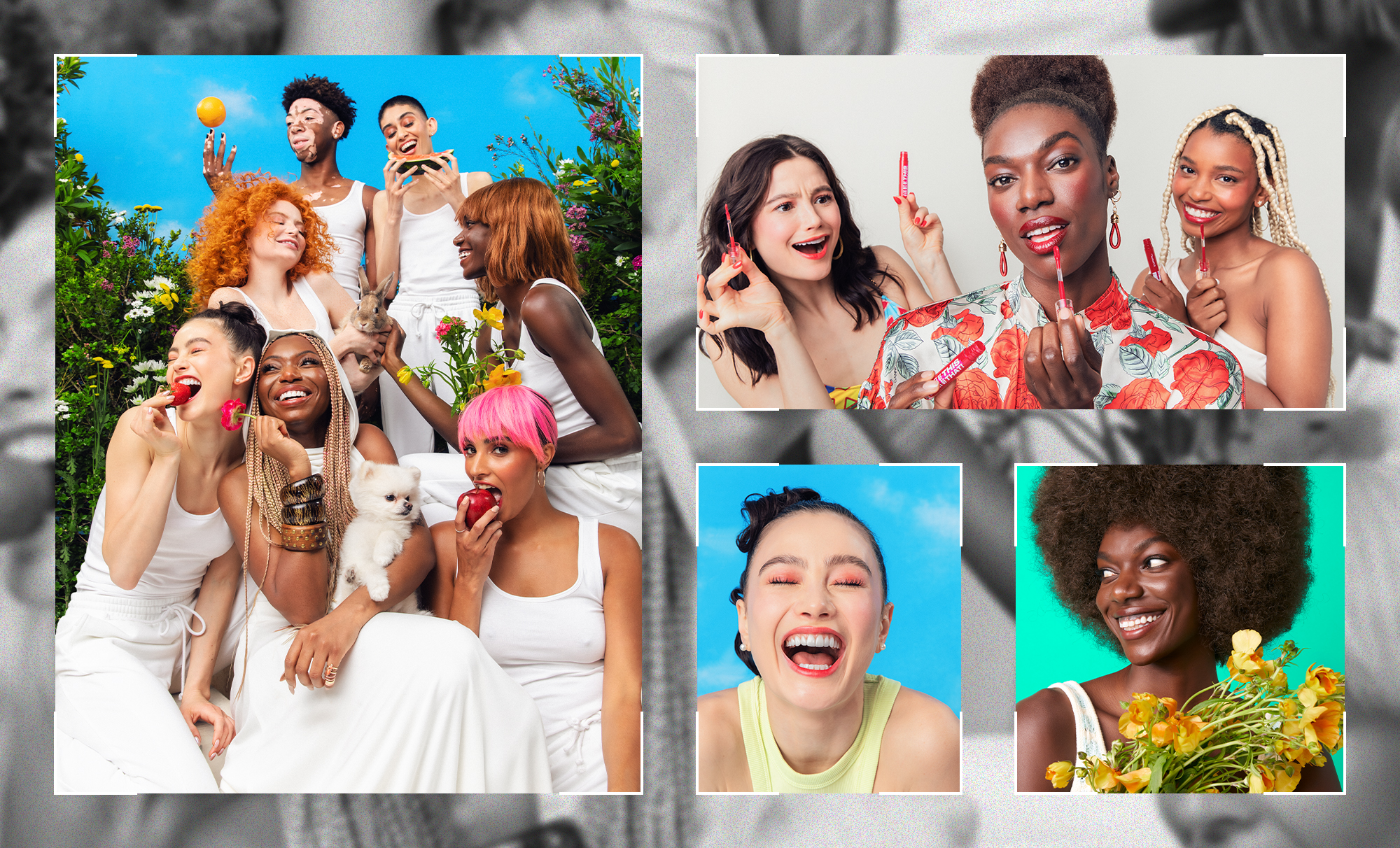
Totally, and I think it's interesting that you said all of that because sometimes I don't think we realize how deeply embedded racism is within our culture and workplace. There are still so many microaggressions that occur on a daily basis. I'm also starting to realize that skincare tailored specifically to darker skin tones is somewhat rare within the beauty industry as well. I think that's definitely starting to change, but I guess my next question is, do you see Uoma Beauty expanding into skincare?
That's giving away secrets! [laughs] But absolutely! The reason I haven't launched it is because we're not a brand that just does cash grabs. Right now, a lot of makeup brands are launching terrible products. If you're going to go into skincare, do something new and innovate in the skincare space. Disrupt the skincare space and provide something that people don't have. Don't just slap your logo on a product that every other skincare brand has and just go in. That's why we're launching at a different time because I've been working on this for years. From the day the brand launched, everybody should have known that skincare was coming because it was already structured that way. These are the conversations I've been having—you can't treat fair skin the way you treat deep skin. Most skincare products on the market have never been tested on skin phototypes four and down.
All skin is not the same. I've got deeper skin—hyperpigmentation is a big problem for me. The way my skin reacts to certain ingredients is not the way white skin is going to react to those same ingredients. Scientifically, dark skin is actually slightly thicker. The way my skin interacts with the sun is completely different to someone who has a lighter shade of Black skin. All of the products out there that deal with growing older are all focused on wrinkles—"anti-aging" [in the skincare industry] automatically equals wrinkle treatment. When I see all these brands that have these kinds of products, there are still no solutions [for other skin concerns] even for lighter skin. There are other concerns that are not being catered to that a lot of people have. But instead, people are just copying and pasting [old formulas] and slapping their brand name on it. That's why we're a bit slower. We've been working on something now for a few years. I continue to perfect it to bring that concept to life because I'm not going to just drop another moisturizer with a logo on it. When we walk into a category, we find what's missing and ask how we can serve consumers.
In the skincare industry, a lot of people are creating all these steps to make more money. So I asked, "How can I reduce some of those steps because I want you to be productive?" For me, I'm not doing a 10-step routine. For us, it's really about taking our time and making sure that when we do drop a skincare line, it's relevant and it's a line that can compete with other skincare brands out there. There are a lot of unmet needs and a lot of amazing ingredients that people have not yet discovered. Especially ingredients from Africa, which is why our women have such amazing skin!
I can't wait for that because I really do think that that's the future of the beauty industry! It's time for a more inclusive industry to emerge with brands creating lines for the needs of Black and Brown skin. There are still so many products marketed toward people of color that actually contain ingredients that aren't even safe for Black and Brown skin. That just feels so wrong to me.
Exactly! Another problem with a lot of the brands that are marketed purely for Black consumers is that they put a lot of ingredients in their products that are inhibiting women's fertility. It's a huge problem in the skincare industry. There was actually a study done where someone took skincare marketed toward Black women and compared it to skincare marketed toward white women. It was crazy to see the difference in the ingredients. The ones marketed toward Black women were these toxic ingredients that are just very bad for you. The ones that were "mainstream" for white women were much better. That's why we need more brands that are thinking about all, not just some. At least some of them are actually honest about it. That's why I really respect Peter Thomas Roth. When you buy his products and you read the label, it very clearly tells you that the product is only suitable for people in his profile, and if you have dark skin, it's really not going to do much for you. At least he's honest about it. Others pretend [their products] work for everybody.
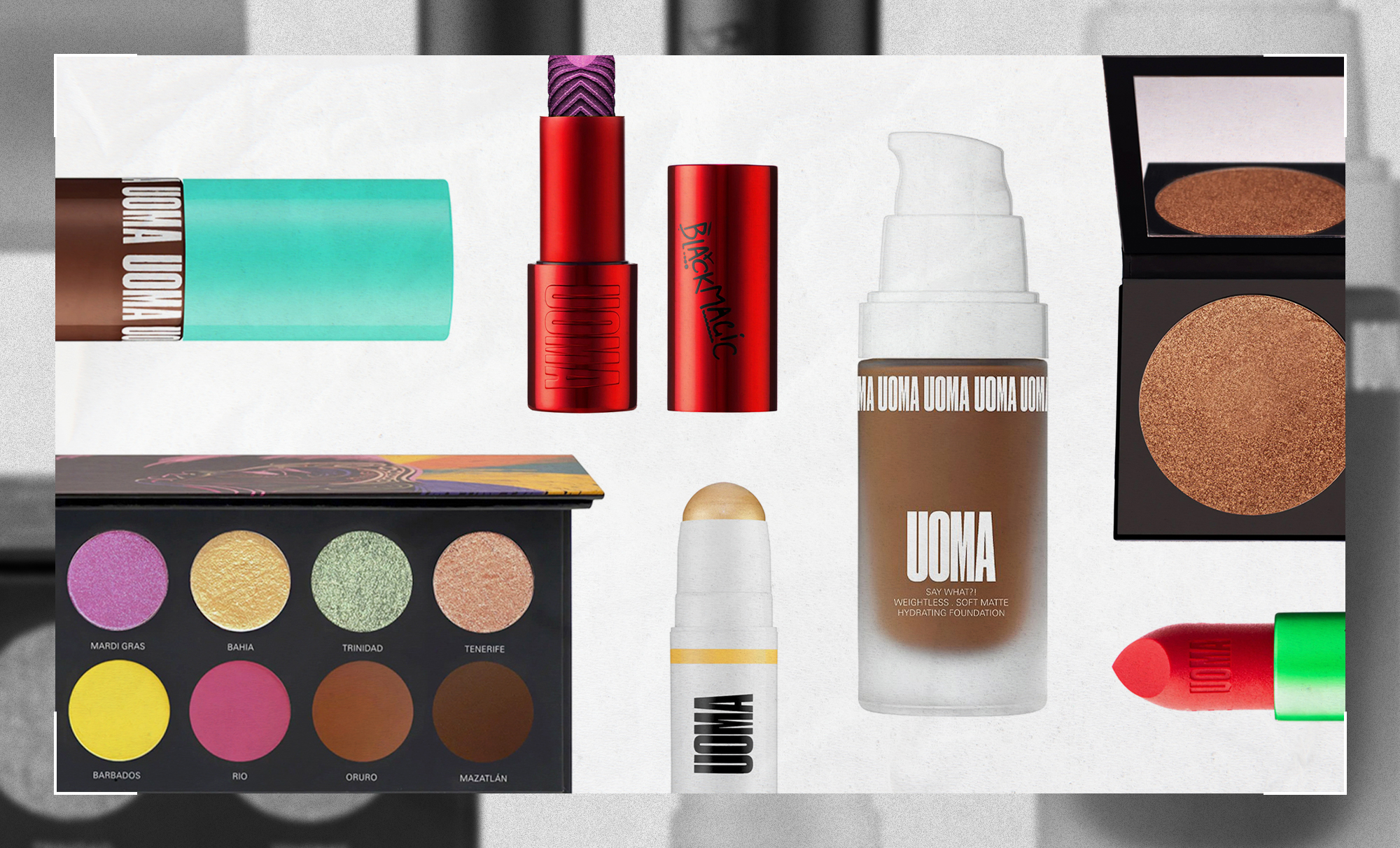
That brings me to my next question (because we're such skincare freaks here): What's your current skincare routine like? Your skin is flawless!
Honestly, just adding water into your life will transform your skin in ways you cannot believe. The truth is a lot of the things that are going to make our skin good, nature has already given to us. So never compromise on water. Second thing [to always use] is sunscreen. Most of the skin problems we have come from the sun and our interaction with it. I keep my personal skincare routine very simple. I've always had acne and very oily skin to the point where oil would drop from my nose. I used to use all those benzoyl peroxide products and salicylic acid scrubs until I finally got the memo at some point. Whatever you take away from your body, your body makes more of it. I changed my routine and removed everything harsh. So right now, I don't exfoliate using a scrub. I use Dr. Sebagh's Deep Exfoliating Mask ($85). You put it on your face, and it just pulls out the dirt. That way, you're not tugging on your skin and over-scrubbing it. That's my pre-step.
Cleansing is a very important step for me—a lot of people underestimate it actually! If I'm wearing makeup, I always use an oil cleanser, which is why I made one in my Uoma by Sharon C range—it's called the Go Off Oil. I am a huge fan of oil cleansers because they don't strip your skin. Especially when you're a heavy makeup user like myself, you want to be removing makeup without damaging your skin. Oil cleansers pull out all the dirt and the oil. Then I will follow that up with a nice soft foaming wash. I love foam washes with a soft lather. I don't like the ones that are intense and drying. It's all about texture. After that, I use retinol. Once you're a woman of a certain age, retinol is very important. I also use that for my acne control. I use prescription right now; I don't use over-the-counter. And then after that, I use vitamin C. I created a 20% vitamin C serum that I use every single day. I use it twice a day because that's my key for radiance. I created a vitamin C with a high dosage of niacinamide and hyaluronic acid because usually, those are the three serums I would normally use.
We always like simple, right?
Switching gears here a tad for my last question. I'd also love to talk about your work with Pull Up for Change. Were you surprised by what the original campaign revealed about the percentage of Black employees at large companies within the beauty industry? Do you think there has been real progress made since then?
Was I surprised? No [laughs], because I knew what it was going to reveal before I did it. In some cases, it was actually a pleasant surprise, to be honest. To answer your question about real change, I think there are two sides to it. On one side, I'm pleased that the industry will never be the same. We've opened Pandora's box. Employees are now more aware, consumers are now more aware, and there's a lot more pressure on companies. So the good news is that the bar has been raised, the cat's out of the bag, and the pressure is there.
I would say that the awareness is there and companies are acting differently. It really shook everybody to their core. Maybe some people hated it, but it did what it was meant to do, which is drive that awareness that remains up till now. So I'm very, very happy that progress has been made. It's work because a lot of companies are trying to do it the easy way. A lot of companies are focused on the PR and the things that are going to look good versus focusing on actually fixing the problem. I always tell people, "This is not that difficult." The truth is that even now, there is still no movement at a policy level to protect Black workers. There's nothing to help others really understand the problems that we're facing and the biases that we're facing at a lot of these companies. That's disappointing to me because I want to see more reform from the EEOC and more oversight happening around this.
We need the government to step in—you can't allow businesses to regulate themselves. They're not going to do that. We still have a lot more work to do because a lot of the steps that are common sense to take are not being taken. Instead, everybody is just looking for a revolving chair, saying, "I want to hire the Black person from that company." We need more of a pipeline for Black people. When you force companies in this way, then they start thinking about how they can create more of a way for Black people to move up in the company organically. If you look at a lot of companies, you hear stories of the white person who started as a receptionist then moved up and eventually became the CEO. How many stories do you hear like that about Black people? There is so much action that could be happening but just isn't. Companies just keep wasting time talking, creating employee resource groups, and doing all of the little things like donating because it gives them good press. I think there's just a lot more work that companies need to do. But most importantly, there's more work that has to be done on a policy level. Because if you move at a policy level, everybody has to move. That is the quickest way that we can actually get there.
Shop Uoma Beauty
Up Next: America Ferrera on Her Secret to Glowing Skin and Changing the Beauty Narrative
Shawna Hudson is a beauty, wellness, lifestyle, and travel writer with over 10 years of experience. She graduated from California State University, Fullerton, with a degree in journalism and has written for other publications such as Bustle, The Zoe Report, Byrdie, Elite Daily, and more. She is currently a beauty writer at Who What Wear and hopes to continue feeding her (completely out-of-control) beauty obsession as long as she can. Stay up to date on her latest finds on Instagram @shawnasimonee.
